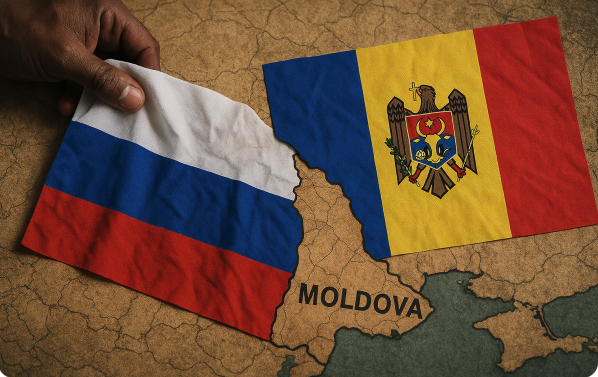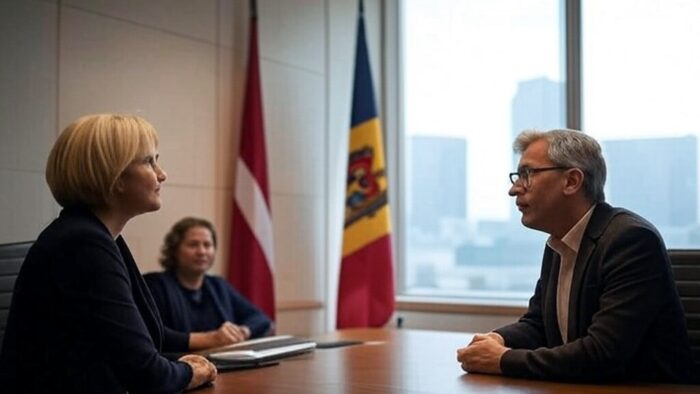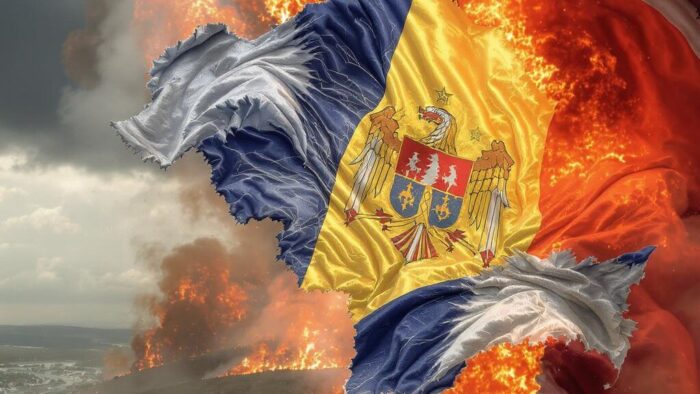Moldova’s pro-EU Party of Action and Solidarity has secured a slim parliamentary majority with 50.16% of the vote in elections overshadowed by accusations of Russian interference. On 29 September 2025, France 24 reported that the ruling party of President Maia Sandu pulled ahead of pro-Russian rivals in the high-stakes election, keeping the EU candidate country that borders Ukraine on track for European integration despite what officials described as unprecedented Russian meddling efforts. The article begins:
Moldova’s ruling pro-EU party on Monday hailed victory in polls overshadowed by accusations of Russian interference, evoking an “extraordinarily difficult struggle” to gain a slim parliamentary majority. The small European Union candidate nation, which borders Ukraine and has a pro-Russia breakaway region, has long been divided over whether to move closer with Brussels or maintain Soviet-era relations with Moscow. Sunday’s elections were seen as crucial for the ex-Soviet republic to maintain its push towards EU integration, launched after Moscow’s 2022 invasion of Ukraine. “Russia threw everything dirty it had into the fight… It’s not only PAS that won the elections, the people won,” Igor Grosu, leader of the Party of Action and Solidarity (PAS), told a press conference.
Key Points
- The Pro-Russian Patriotic Bloc received 24.19% of the vote, compared to PAS’s 50.16% in the 101-seat parliament.
- Election day was marked by bomb threats at polling stations abroad and attempted cyberattacks on electoral infrastructure.
- Former President Igor Dodon called for protests, claiming election theft and demanding a re-vote.
- European leaders, including Zelensky, hailed the result as a victory against Russian destabilization efforts.
Russia’s €200 Million Moldova Election Interference Campaign: Hybrid Warfare Test Case
Moldova has emerged as a critical battleground for Russian influence operations, with Moscow orchestrating a €200 million campaign representing nearly 1% of the country’s GDP to interfere in the 2024 presidential election and EU membership referendum through coordinated vote-buying, disinformation, and cyberattacks. Despite these unprecedented interference efforts, President Maia Sandu secured reelection with 55% of the vote and the EU referendum narrowly passed with 50.46%, with the Moldovan diaspora proving decisive as approximately 327,000 voters abroad cast ballots, over 82% favoring the pro-Western president, though the slim referendum margin revealed deep societal divisions that Russia continues to exploit.
Russian operations in Moldova employ what observers describe as a “tsunami” of interference tactics far exceeding previous campaigns, including fugitive oligarch Ilan Shor orchestrating vote-buying schemes with financial support from Russian intelligence networks that reportedly funneled $15 million to 130,000 Moldovans as part of a massive bribery operation. The Kremlin’s multifaceted strategy encompasses coordinated disinformation campaigns across social media platforms, planned espionage at diaspora polling stations, including false bomb threats at German voting locations, and cyberattacks on governmental infrastructure.
There were also training camps in Russia, Serbia, and Republika Srpska where over 100 Moldovan activists received instruction from former Wagner Group mercenaries on inciting riots and using violent tactics against police to destabilize democratic processes. The Kremlin’s broader strategic objective centers on preventing Moldova from becoming what analysts call a “poster-child for post-Soviet democratization,” blocking the country’s European integration path toward its 2030 EU membership target, and incorporating the former Soviet republic into Eurasian structures.
Russia’s comprehensive destabilization campaign exploits vulnerabilities in the autonomous Gagauzia region to provoke separatist tensions, leverages economic coercion through gas supply disruptions, saturates local media with propaganda, and maintains approximately 1,500 Russian troops in the Transnistria breakaway region along Moldova’s 1,222 kilometer border with Ukraine, creating what Western officials recognize as a testing ground for evolving hybrid interference tactics that Moscow intends to deploy elsewhere, making Moldova’s resistance a crucial test case for democratic resilience against Russian information warfare with implications extending far beyond the small nation’s borders.
External References:
1. Russian Interference in the 2024 Moldovan Presidential Election and Constitutional Referendum — United States Institute of Peace
2. Moldova warns Russia unleashing huge interference campaign to sway crucial election — CNN
3. Moldova’s 2025 Elections: A Test Case for Russia’s Hybrid Warfare — Stimson Center
Disclaimer
The Global Influence Operations Report (GIOR) employs AI throughout the posting process, including generating summaries of news items, the introduction, key points, and often the “context” section. We recommend verifying all information before use. Additionally, images are AI-generated and intended solely for illustrative purposes. While they represent the events or individuals discussed, they should not be interpreted as real-world photography.











